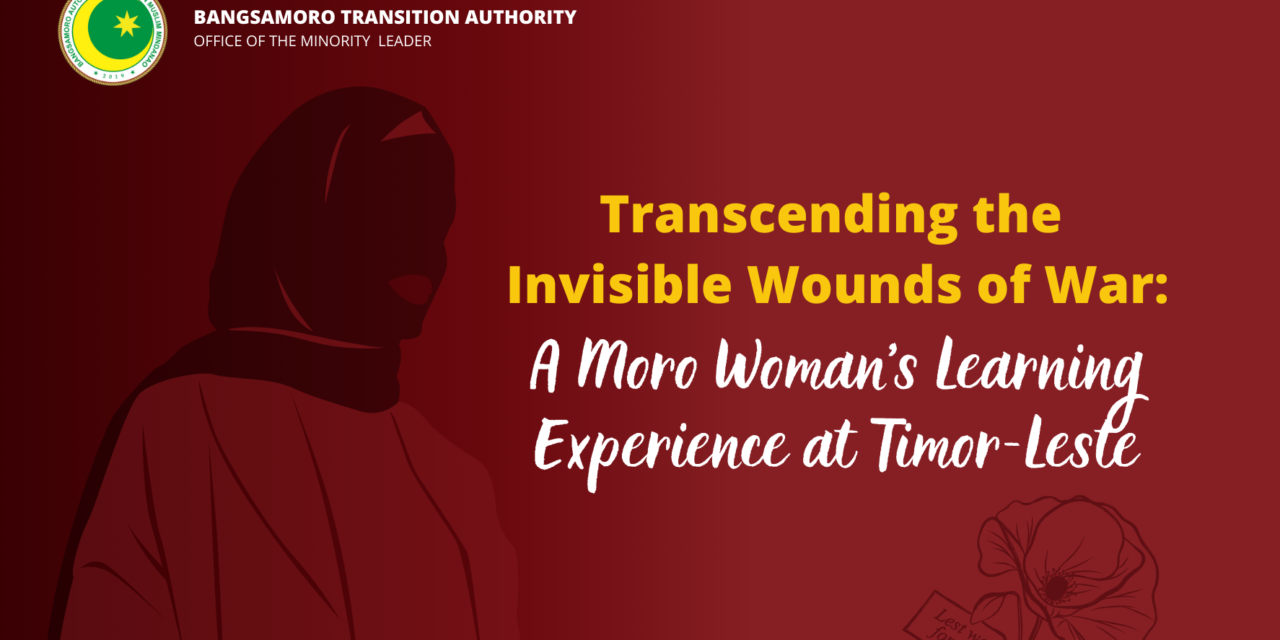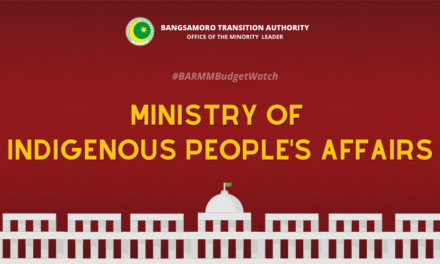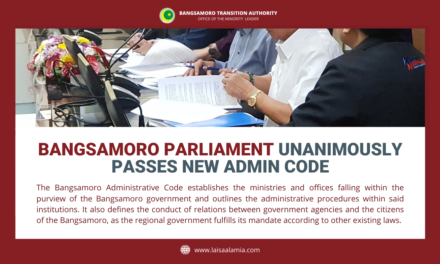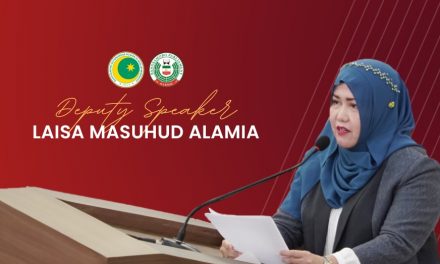This article was originally published in Solidarity!,a publication of the Initiatives for International Dialogue.
As I flew back to Manila from Bali after spending six days in Timor Leste, I was reminded by what the character Dr. Ishiro Serizawa said in the movie, Godzilla: King of the Monsters:
Sometimes the only way to heal our wounds is to make peace with the demons who created them.
Poignant and apt, this quote somehow resonated in my mind as I looked back at what I and colleagues of mine in the Bangsamoro have discovered and learned at Timor Leste. My family and community have experienced first-hand the effects of conflict during the time of Martial Law under the dictatorship of former President Ferdinand Marcos in the early 70s and in the more recent 2013 Zamboanga Siege, so I could relate to the painful experience of the Timorese. What stood out as a path towards healing which we saw in a community that we visited in Timor Leste was that healing can be achieved by accepting the paradoxical theory of change, by “welcoming” the pain from the invisible wounds of war – to walk towards the pain rather than trying to run away from it, to welcome it, to get to know it, to see what it’s all about, so much so that if you stop resisting the pain, and just allow it to sit next to you, to just let it be, then you’ve already changed your relationship to it. And the healing begins.
I recently joined a learning visit to Timor Leste with my colleague at the BTA parliament, Engr. Baintan Adil-Ampatuan, together with Dr. Stefan Jost of the Konrad Adenauer Stiftung (KAS), Mr. Gus Miclat and Ms. Kyle Bacsal of the Initiative for International Dialogue (IID), Mr. Roberto Apadan, Jr. of the Consortium of Bangsamoro Civil Society (CBCS), Mr. Salahuddin Edres of the Dynamic Culture of Peace-Lanao (MIDCOP-Lanao), former Bangsamoro Transition Commission (BTC) member Hon. Froilyn Mendoza, Deputy CEO Tommy Nawa of the United Bangsamoro Justice Party (UBJP), and Ms. Karin Widner of the German Development Cooperation. The mission was put together by the IID, KAS, and the Institute for Autonomy and Governance (IAG) under the Democratic Leadership and Active Civil Society Empowerment (DELACSE Bangsamoro) project consortium supported by the European Mission in the Philippines. The visit sought to initiate mutual learning and solidarity between the Timorese people and the Bangsamoro.
East Timor, being one of the youngest countries in the world, has had a long history of colonization and occupation leading to its independence in 2002 and a violent, painful near-civil war from 2006 to 2008. It has, however, made great strides in pursuing peace and development in the past years, something that the Bangsamoro stakeholders can assimilate for our own transition process. The learning visit primarily delved into political party transformation, transitional justice and post-conflict development, civil society and finance institutions engagements, veterans empowerment, and parliamentary systems, mining insights from both the Bangsamoro and the East Timorese experience.
Our delegation interacted with the Timorese government and civil society, underscoring the partnerships they have forged over the years in rebuilding their country. We met with Prime Minister Taur Matan Ruak, who shared the stories and visions of the Government in pursuit of better lives and services for their people. We were asked to sit in one of the sessions of the National Parliament where we met with some of its members, particularly the women’s caucus and Vice President Maria Angelina Lopes Sarmento.
Hosted by local partners g7+, an intergovernmental organization engaged in post-conflict development advocacies, and the Chega! Office, a transitional justice center, the delegation was further introduced to East Timor’s history of struggles and peacebuilding. We also had a dynamic interaction with Minister Alfredo Pires of the Ministry of Petroleum and Mineral Resources, the central government body responsible for the design and execution of the energy policy and management of mineral resources, including oil and other strategic minerals, as approved by the Council of Ministers, as well as for licensing and regulation of extractive activities, industrial activities of improvement of oil and minerals, including the petrochemical and refining industry.
The delegation met with members and the Secretary General of political party Fretilin, Mari bin Amude Alkatiri, the second Prime Minister in the history of Timor Leste, remarkably one of the very few Muslim politicians in Timor Leste, which is 97% Christian. What he said during our meeting was noteworthy, a nugget of wisdom that should be borne in mind by revolutionaries seeking to transform themselves into bureaucrats and state leaders: “The struggle for liberation is a long struggle. But the liberation of people from poverty takes much longer.”
We were also given the opportunity to get insights from the country’s former Ambassador to Geneva, Joaquim Fonseca. In his youth, Fonseca led the Indonesian wing of the National Resistance of East Timorese Students (RENETIL), a resistance movement of students from East Timor against the Indonesian occupation between 1975 and 1999. The delegation also paid a courtesy call to H.E. Ambassador Abdulmaid K. Muin who heads the Philippine Embassy in Timor Leste.
We were given an opportunity to meet Nobel Peace Prize awardee Dr. Jose Ramos-Horta, whose work and leadership contributed to the peaceful resolution of conflict in the country. The pearls of wisdom borne out of experience imparted Dr. Ramos-Horta over dinner were riveting and resonated in me considering the transition and post-conflict reconstruction and statebuilding we are experiencing in the BARMM from the previous dispensation. He said, and I quote, “Democracy is not always the solution, but good governance is.”
We also had an opportunity to meet personally the charismatic Xanana Gusmão himself, former President and Prime Minister of Timor Leste, awardee of the Sakharov Prize for Freedom of Thought, and now President of the second largest political party in the country, the National Congress of Timorese Reconstruction (CNRT). There was a fruitful meeting with the Minister of State of the Presidency of the Council of Ministers, Agio Pereira, who, in 2002 until 2007, used to be the Chief of Staff to then Presidents Xanana Gusmão and José Ramos-Horta, respectively. He discussed the parliamentary system of government of Timor-Leste and the effectiveness of the institutions that they have set up to maintain checks and balances in the government. These mechanisms include the Ministry of Parliamentary Affairs, which Minister Pereira advocates that for stability, the government (in the BARMM, this refers to the Executive) must be completely separate from the Parliament; the setting up of an Infrastructure Fund that is autonomous from the budget of the government; the National Development Agency, National Procurement Commission, and the Ministry of Planning and Strategic Investment. The organizational structure of the Timor Leste Parliament and Constitutional Government are good models for BARMM to emulate.
A remarkable part of the solidarity visit was the delegation’s meeting with the women members of parliament led by the Vice President of the Parliament, Lita Lopes Sarmento, and MPs Elvira Sousa from the Democratic Party and former KAS scholar, Lidia Mertius from Fretilin party, Maria Angelina, and Nelia Meveles. Notably, the Parliament has a Women’s Caucus where all women MPs are members irregardless of party affiliation. There is also a gender quota system in the Electoral Law of 2006 which requires that women make up one third of the listed candidates. Timor Leste is probably one of only a few countries in the world with the most progressive quotas for women in government. We hope to transplant this best practice on women in governance in the BARMM.
The community visit to Liquica, organized by BELUN, was eye-opening. We met with district representatives and members of the community and learned about conflict prevention and resolution, localized implementation of transitional justice mechanisms that they have chosen, and peace-building. I felt the pain of the survivors as some of them recounted what they have experienced during that violent period of the country. Somehow, the survivors have made peace with those who caused injustices to their community, which was facilitated through memorialization, acknowledgement from the perpetrators, and commemoration visits to the area by those who took part in the atrocities previously committed where both perpetrators and survivors offer condolences, apologies, and forgiveness to each other, paving the way towards healing. Indeed, sometimes the only way to heal our wounds is to make peace with the demons who created them.
The Early Warning Early Response System (EWER) for conflict, a program implemented by BELUN as explained by Luis da Costa Ximenes and his colleagues can be replicated in BARMM to manage and resolve conflicts, rido and offenses committed at the community level which can be subjected to alternative modes of dispute resolution. They have a land management and dispute resolution program, database management system for EWER, analysis of data and publication, and capacity-building of communities, including prevention and management of gender-based and domestic violence. The Access to Justice Clinics Program is particularly interesting and a good strategy with paralegal service for alternative dispute resolution, negotiation, mediation, conciliation and arbitration for all issues, including land and property disputes.
I and my colleagues in the delegation carried with us key takeaways to contribute in sustaining peace and pursuing inclusive development in the Bangsamoro region. Among these are policies that I and my office have already started to conceptualize as policies and programs in the BARMM such as the establishment of the Bangsamoro-Timor Leste Caucus between the parliaments of BARMM and Timor Leste, in coordination with IID, g7+ and Chega! organization. This caucus is envisioned to sustain the gains of the solidarity and learning visit of BARMM to Timor Leste. BARMM leadership may also consider joining the g7+ to facilitate exchange of technical assistance and knowledge on state building, party transformation, transitional justice and post-conflict development, civil society and finance institutions engagements, veterans empowerment, and parliamentary systems, considering some similarities in the revolutionary and political history of BARMM and Timor Leste.
The other policy framework that I would like to pursue is the setting up of the Women’s Parliamentary Caucus across different party lines within the BARMM Parliament. This will play a strategic role for more meaningful political participation and representation of women in policy and lawmaking, gender justice issues, and providing peer support to women Members of Parliament (MPs).
Considering that BARMM has oil, gas and mineral deposits, the good practice of Timor Leste in institutionalizing, through a policy, the standards of Extractive Industries Transparency Initiative (EITI) as a framework for good governance of oil, gas and mineral resources is worthy of emulation. Prior to our visit to Timor Leste, my office has already drafted a bill adopting the EITI standards in BARMM in preparation for future initiatives on oil and gas, with the prudent use of our natural resource wealth to be used as an engine or strategy towards sustainable economic growth that contributes to sustainable development and poverty reduction within the autonomous region. Seeing the EITI standards put in place in Timor Leste and being practiced validates the advocacy on EITI which my office has initiated in the BTA.
The exchange between the Bangsamoro delegation and the Minister of Petroleum and Mineral Resources was particularly instructive. My office will be filing a bill on the mechanisms and strategies implemented by said Ministry in the BARMM, particularly on the Petroleum Fund and the Infrastructure Fund that was set up by the Timor Leste Parliament to rationalize and maximize utilization of revenues from oil, gas and natural resources towards infrastructure and economic development.
Finally, an important takeaway from the solidarity and learning visit is the setting up of mechanisms and strategies to address the situation of former combatants through the institutionalization of a Ministry of Veterans and implementation of programs for ex-combatants as part of transitional justice mechanisms and normalization. These programs include provision of pension based on the rank , contribution and number of years in the struggle, housing, health insurance, scholarships for children, and a Veterans Investment Fund.
I left Timor Leste enthralled by the resiliency, patriotism, and grit of the Timorese and their innate kindness, with several pages in my journal filled with ideas for possible transplanting of the country’s best and effective practices to BARMM. While Timor Leste may be a young democracy – with imperfections that are expected in nascent, fragile post-conflict states still reeling from a long history of occupation, violence and conflict, where freedom fighters are expected to transform into statesmen and state builders overnight – the country holds a strong vision for good governance, peace and development, and for its people’s right to self-determination. The vision and direction that they would like to take is clear – their path has been mapped, even while they are still recovering and healing from the wounds of war. The hiccups they might be experiencing from the time of their independence to the current challenges in building a strong and stable democracy post-revolution may have caused setbacks but overall, their progress is remarkable compared to other countries of similar context. I can only hope and pray that the Bangsamoro people would be inspired to imbibe the best practices in Timor Leste as we embark on our own journey of transcending the invisible wounds of war towards democracy, statebuilding, peacebuilding and development.








